Planning your first trip abroad doesn’t need to be difficult or complex, but it may involve asking and answering a few questions you’ve never really considered.
No, this isn’t the part of travel where you lay on the beach or go ziplining or eat great street food. This is the part where you educate and prepare yourself a bit so you can have a successful trip. With that out of the way, it’s easy to get to the enjoyment portion.
If you’ve never traveled outside the country before, this one’s for you. Let me know if you have any questions in the comments, or if I’m unclear! Let’s get started.
#1. I don’t have a passport yet. How do I get one?
Check the US State Department website for current instructions. Additionally, click here or through the picture below for my own personal run-down of how to do it, as well as my experiences. First thing you should know: obtaining a passport can take as long as four to six weeks, so plan accordingly if you’re planning a trip in the coming months!
#2. Do I need to get shots, immunizations, or other medication before I travel?
Maybe. Depends on where you’re going and if diseases like malaria are prevalent there. And it depends on your medical history too. Click through the image below for deeper description.

RELATED POST – Travel Health: Immunizations, Diarrhea & Malaria (photo used via Creative Commons licensing, via Wikimedia Commons).
#3. Do I need to get a visa for the country(s) I’m visiting?
Maybe. Some countries offer visas on arrival at the airport or border office, but some require you to send your passport off to an embassy before you enter. These things vary by country, and regulations change over time – it can get pretty complicated pretty quick, honestly. Educate yourself before you go so you don’t get stuck at the airport or at the border. I’d write more about this here, but I already did it here, so go there for more info about how to plan for visas and visa renewals while traveling.
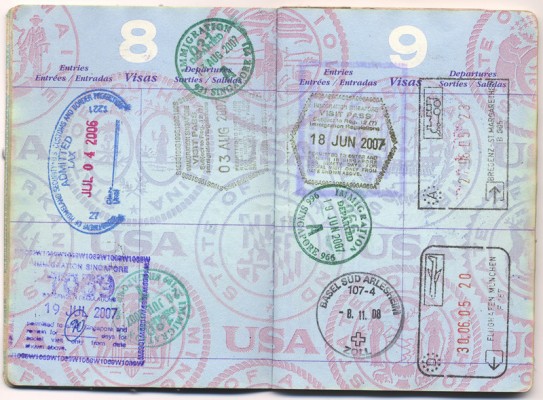
RELATED POST: FOREIGN VISAS: WHAT ALL TRAVELERS SHOULD CONSIDER (image by Daniel Clayton Greer, used under Creative Commons licensing).
#4. Do I need travel insurance?
Yes, you do – not only for your first trip abroad but for every subsequent trip as well.
Make sure you’re covered for medical expenses (preferably at least $100,000 US), as well as emergency evacuation/repatriation ($300,000 – $500,000 US), and potentially for baggage loss as well. These are the most important coverage aspects in my mind. Trip cancellation/interruption insurance may be of interest to some travelers as well.
You may be thinking: “my usual health insurance covers me abroad, doesn’t it?” I can’t even begin to answer specific questions like that though – call your provider and ask specific questions related to your trip dates and the countries you plan to visit. My personal experience: my usual health insurance in the US does NOT cover me abroad, so I always, always buy travel insurance for primary coverage.
Also, consider this: even if your medical coverage extends to other countries, consider that you will NOT likely be covered for emergency evacuation/repatriation via any of your existing insurance coverage. So I recommend that you buy travel insurance regardless of your existing medical insurance coverage.
Also: I do not recommend you buy your travel insurance through your airline at the time of airfare purchase. Buy through a reputable site like WorldNomads, TravelEx or TravelGuard.
#5. Do I need to know the local language? What about local customs?
Not really, no. If you’re traveling as a tourist, you only need a few simple things on a daily basis: a place to stay, transport hire, and food. Most of the people working in these industries have seen your kind before and will understand what you want on some basic level.
English is the most useful common language for international travel these days, and the majority of tourism service providers will default to English as a second language prior to usage of others. Spanish, French and German are also great languages to have a command of when traveling, but English has become the standard, really. People from the United States, England, Australia and other English-as-a-first-language country can obviously (and lazily) take full advantage of this fact.
Yes, there are countries, or regions of countries where no English is spoken, and there will be times when communication is difficult. But working around language barriers can be a fun and memorable part of any travel experience. Be patient with yourself and others and you’ll figure it out and maybe even get a bit of a story to tell afterwards too.
Now that I’ve said the above: learning even just a FEW words of the local language in a given country is FUN and will make the people you meet like you more. You don’t have to speak the language WELL, you just have to TRY, period. Speaking a tiny bit of the language will change your travel experience and locals reactions to you moreso than anything else you can do on your trip. Start with “hello” and “thank you” and work from there.
As for adherence to local customs in order to avoid offending locals: I recommend you check a country-specific guidebook so you know what hand-gestures might get you into trouble, or what hand you shouldn’t shake hands with. Consider this though: if you already can’t speak the language, most locals will have limited expectations that you’ll understand local customs. You may get laughed at or stared at for some of the things you do. Stay humble and shrug it off, as the chances that your behavior will land you in serious trouble are quite limited so long as you’re making an obvious effort to be courteous and kind.
#6. Is it safe where I’m going? How do I stay safe once I’m there?
The answer is usually YES (but admittedly not always).
There’s more hysteria over the “is it safe” question than just about any other travel 101 question. If you’re nervous about international travel, that’s ok – your fear is likely an extension of a lack of knowledge about the place you’re going to visit. Best way to cure that? VISIT THAT PLACE!
Here’s how I decide if a country is safe to travel in or not:
- The most important part of how I determine if a place is safe to visit or not: I ask MULTIPLE other travelers that have traveled to that country RECENTLY and if they ever felt unsafe or if they had other concerns. I realize not everyone has a big network of independent travelers in their life – so if not, consider reading multiple travel blogs and asking questions in the comments.
- Check the travel ministry / state department website to see if your home government is in some kind of political/military/economic conflict with the country you’d like to visit. I should say this though: just because a governmental body like the US State Department carries a grudge against a given nation doesn’t mean that I should completely rule that place out for travel. Some of these travel advisories have nothing to do with tourism and more to do with governments posturing against one another. Sometimes these grudges are decades old and don’t affect you whatsoever.
- I pay attention to timely international news about the country I’d like to visit. If there is serious political unrest or high levels of violence, that’s worth thinking about. On balance, it’s also worth learning the geography of a given country so you can understand exactly WHERE the violent/unrest is actually taking place. This may help you avoid generalization of a whole country/region as unsafe for travel.
In other words, deciding on if a country is safe enough for travel is a PROCESS. If you want to go interesting places, prepare to educate yourself. I believe this portion of travel planning to be highly edifying and look forward to it.
Once you get to the place you’re going, staying safe isn’t that tricky. The main thing is this: the same rules of street smarts and personal safety apply in just about any part of the world as they do at home. A few baseline tips:
Educate yourself on the places you plan to go, and talk to other travelers about their experiences, especially if you’re wary of certain areas of a city. Don’t walk around at night in unfamiliar places. Walk with purpose and don’t appear lost, especially at night. Read about common local scams before you arrive in a given country. Always be friendly with locals (as opposed to being a jerk), but don’t be scam-prone rube. Don’t leave your personal valuables lying around. Don’t accept drinks or food from strangers (especially in bars). Things like this.
Choosing safe destinations and staying safe while traveling isn’t difficult. Educate yourself, think things through a bit and you’ll be fine.
#7. Is it safe to travel solo?
Yes, it is (even on your first trip abroad) – but this is in my mind the wrong question to ask, because traveling with a buddy isn’t first and foremost to ensure safety.
What I mean is this: you should travel with a buddy not to stay safe, but rather because you want to have a shared experience with that person and enjoy their company. A travel buddy is first and foremost a companion, not a bodyguard nor a potential witness.
I’ve been traveling solo for over ten years and have never had a problem related directly to being a solo traveler. I’ve also been granted other positive experiences that I may not have had if someone was there traveling with me. It’s a balance. And beyond that, I meet so many great people along the way that they regularly become my travel buddies anyway. So I can hardly call solo travel “solo” all that often!
Bottom line: if you have time/money/desire to go travel and can’t find/convince a buddy to go with you, don’t let it deter you from traveling. It’s not as big of a safety concern as you might think.
Is it safe to travel solo as a female?
You can travel safely as a solo female traveler as well – accordingly, I know as many solo female travelers as I know male solo travelers. This topic has been heavily covered by female travel bloggers. A few articles worth reading to address concerns:
- Nomadic Matt: Solo Female Travel Advice (guest posts)
- Adventurous Kate: Top 10 Safety Tips for Women
- A Little Adrift: A Little Honesty: On Safety and Solo Female Travel
- The Blonde Abroad: Ten Essential Tips For Solo Female Travelers
#8. How do I get access to money while abroad?
Many first-time travelers seem to think that they’ll have to carry a lot of cash and exchange it at a foreign exchange window to fund their day-to-day activities. This is an option, but it’s generally not the best one.
I recommend using an ATM card connected to your savings or checking account as your main source of cash while traveling. ATM cards pretty much always give better rates of exchange from your home currency to local currencies, and the fact that you aren’t carrying tons of cash lowers your risk of losing a ton of cash all at once, too.
That said: I use foreign exchange windows on almost every trip I take – either to dump my remaining local currency before flying home, or to exchange it when crossing between two foreign countries. But they simply don’t give as good of rates as my ATM card does, so I use them as a SECONDARY part of my cash plan.
What can go wrong with an ATM-card based plan? A couple of things, but they’re not huge concerns:
In very few instances, you’ll be forced to carry all the cash you need into a given country due to there being no international banks on hand – I had to do this in Myanmar/Burma in 2011, and exchanged said cash on the black market (exciting!). But the vast majority of countries have ATMs in all but the smallest of cities/villages these days (less exciting, more reliable).
Also, there are times that foreign ATMs are either non-functional or are even completely out of cash in some developing countries. The solution? Think ahead and avoid running yourself so low on cash that this could ever become anything other than a point of minor irritation and inconvenience.
As for concerns about skimming devices on foreign ATMs – scams like these happen from time to time everywhere in the world. If the ATM looks like it’s been tampered with, just don’t use it.
In broad strokes, your cash plan for your first international trip should look like this in most cases:
- Carry a couple hundred in cash of a transferrable currency like US dollars or Euros in cash. Carry a bit of it on you, and hide some of it deep in your bag where nobody would find it.
- Carry at least one major credit card – I recommend a VISA, considering that some cards like DISCOVER and AMERICAN EXPRESS do not work in as many places.
- Don’t mess with travelers cheques, they’re more or less obsolete at this point.
#9. Will my credit card work while I’m abroad?
Depends. If you’re in a place like western Europe, there’s a high likelihood that your credit card WILL work. But if you’re traveling in the developing world, the majority of the lodgings, shops and restaurants you visit will accept only CASH.
Personally, I plan for the lowest common denominator of experience and pay for most goods and services in cash, which I obtain with my ATM card as described above.
In other words, you SHOULD carry a credit card with you while you travel, but you shouldn’t be shocked when service providers don’t accept credit.
#10. Can I use my mobile phone for calls and/or data while abroad?
Yes, but most US citizens shouldn’t unless they’re traveling on business and being reimbursed for their costs in my opinion. Reason? Using your mobile abroad with most carriers like AT&T, Verizon, etc gets REALLY expensive REALLY fast, especially with regular data usage. International add-on packages can be confusing and offer limited savings from my experience as well, so I just don’t even mess with them unless I have to. Note: carriers like T-Mobile may provide better options for data and texting while abroad, but I’m not going to get into mobile plan specifics here – they change too quickly and are by no means transparent!
Here’s what I do when traveling for phone communications, pretty much every time I travel:
I bring a mobile phone that’s “unlocked” for international usage and purchase a local pre-paid SIM card in each country I visit. This strategy works almost everywhere, and is almost always very inexpensive. This gives me a local telephone number that I can use to call ahead to hotels or vendors, and also to contact other travelers to arrange plans and stay in touch. Many pre-paid SIM cards offer data service as well, so you can likely use your smartphone like usual if you prefer (though data usage sometimes burns through one’s prepaid credits quite quickly in some countries, fair warning).
When I change countries, I change SIM cards to the new country’s SIM card, and make sure that anyone that needs to contact me from the previous country has my e-mail address, as my mobile number from that country will then become inactive and useless to me.
For international real-time communications, I find a reliable internet connection and use something like Skype. Or I just e-mail the person. Or I pick up an international calling card that works with my local SIM card, which generally provides favorable per-minute rates. In a dire emergency, I’ll use any phone I can get my hands on, including my home cellphone / home SIM card, of course!
Different countries have slightly different identification requirements for obtaining a SIM card. Check your country-specific guidebook like Lonely Planet or Rough Guide.
Finally: if you’re taking a short trip (under two weeks, in my opinion), and don’t need to use a phone regularly, just don’t bother with using a phone at all. Put your smartphone in airplane mode and enjoy the mental quiet this will bring. You can still use the thing as a WiFi device at coffee shops and hotels (without charges from any carrier).
BONUS QUESTION: #11. Should I carry a rolling bag or a backpack?
This really depends on the trip you plan to take.
If you’re going from hotel to hotel by private car or tour bus, it doesn’t matter what type of bag you bring, so do as you wish. But if you’re doing an independently motivated budget trip and are moving around by mixed forms of public transportation and tons of walking, especially in places where the roads and/or sidewalks are questionably maintained (or are made of something like cobblestones), I would posit that you’ll be much happier with a backpack than a rolling suitcase. This has definitely been the case for me over the years, and I remain an internal frame backpack user.
That said: make sure you use a backpack that actually FITS you. An ill-fitting backpack has potential to cause immeasurable discomfort and irritation, sometimes to the point of injury. Also, men’s and women’s backpacks are a bit different in design. Visit your local outdoors store to see what fits your frame.
Thanks for reading! Check the Before You Travel section for more tips on travel preparations.

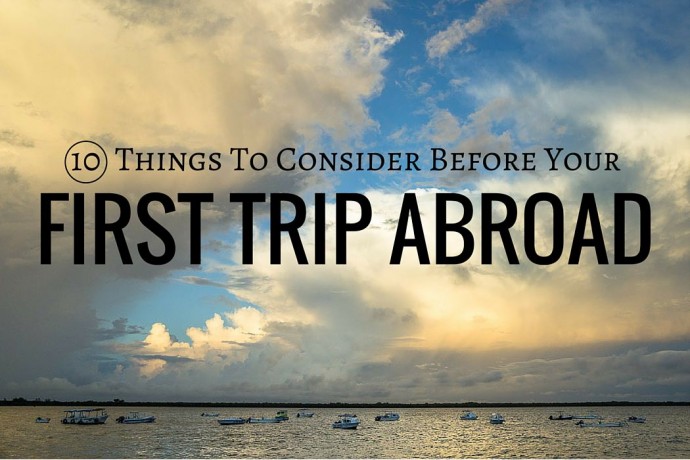
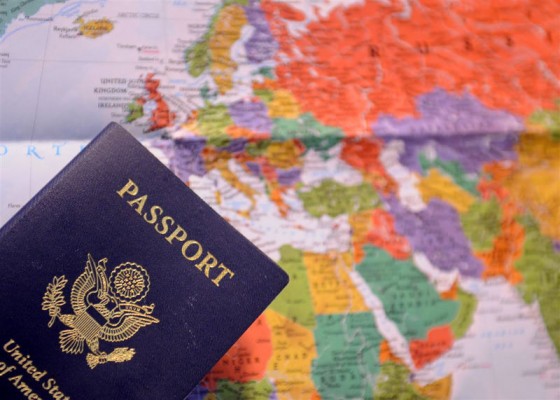
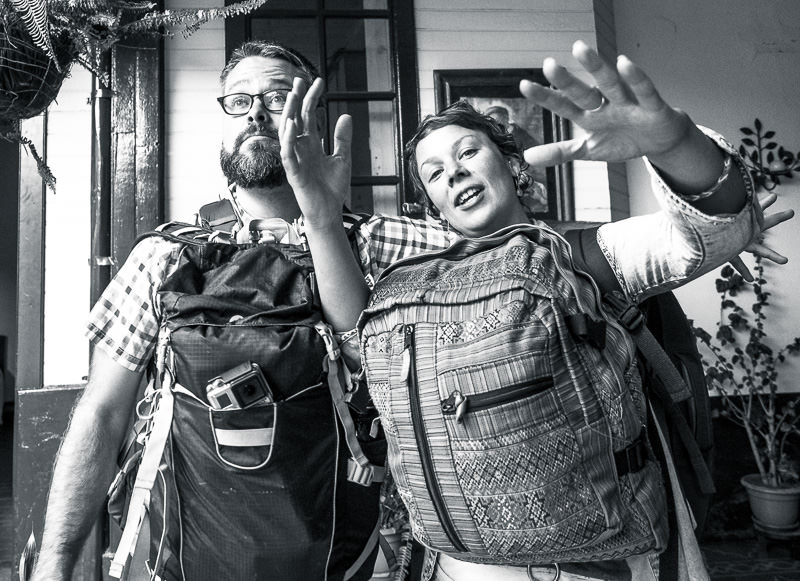
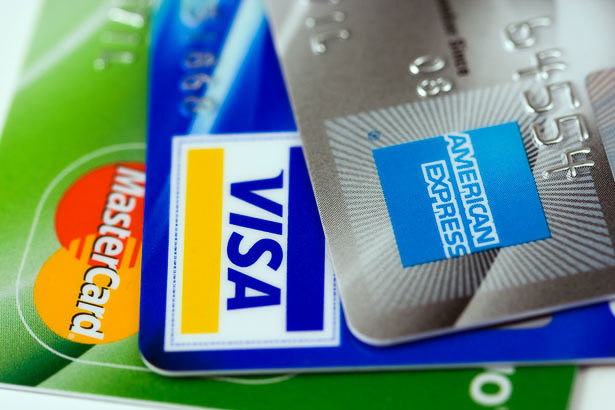



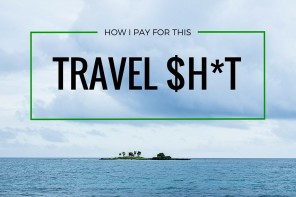




I’d actually like to see something about where to stay when abroad. Hostels, hotels, etc. Where to sleep, shower, and other…business.
Thanks for stopping by, Dan. These kinds of questions get somewhat country-specific and budget-specific, but such questions are easily answered with a good travel guidebook or a city/country-specific blog post. My aim here was to answer the questions I hear most frequently from others. Thanks for stopping by!